Academic Information
B.Sc Nursing
P.B.B. Sc Nursing
M. Sc Nursing
M. Sc Nursing NPCC

B.Sc Nursing

P.B.B. Sc Nursing
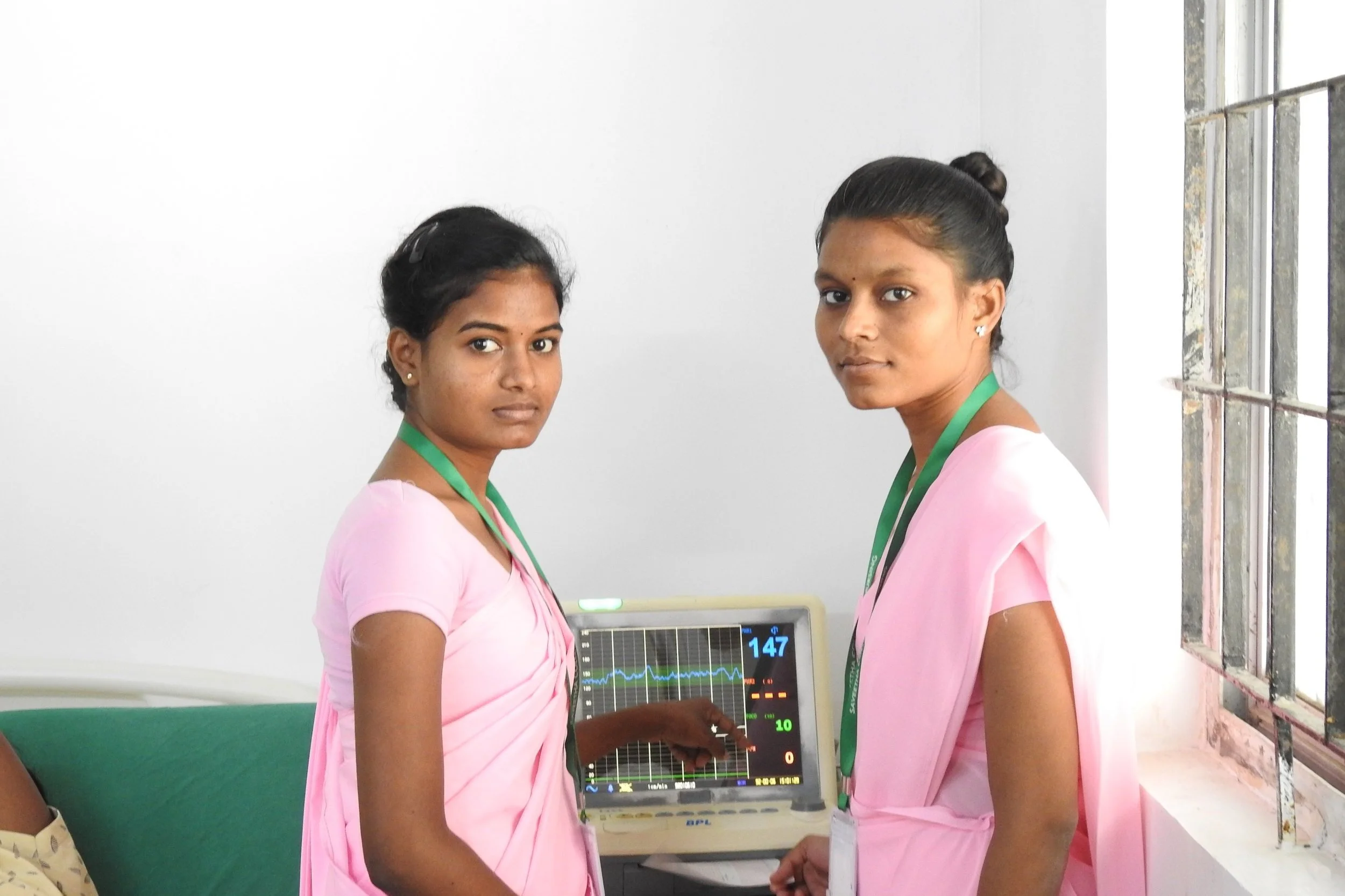
M. Sc Nursing
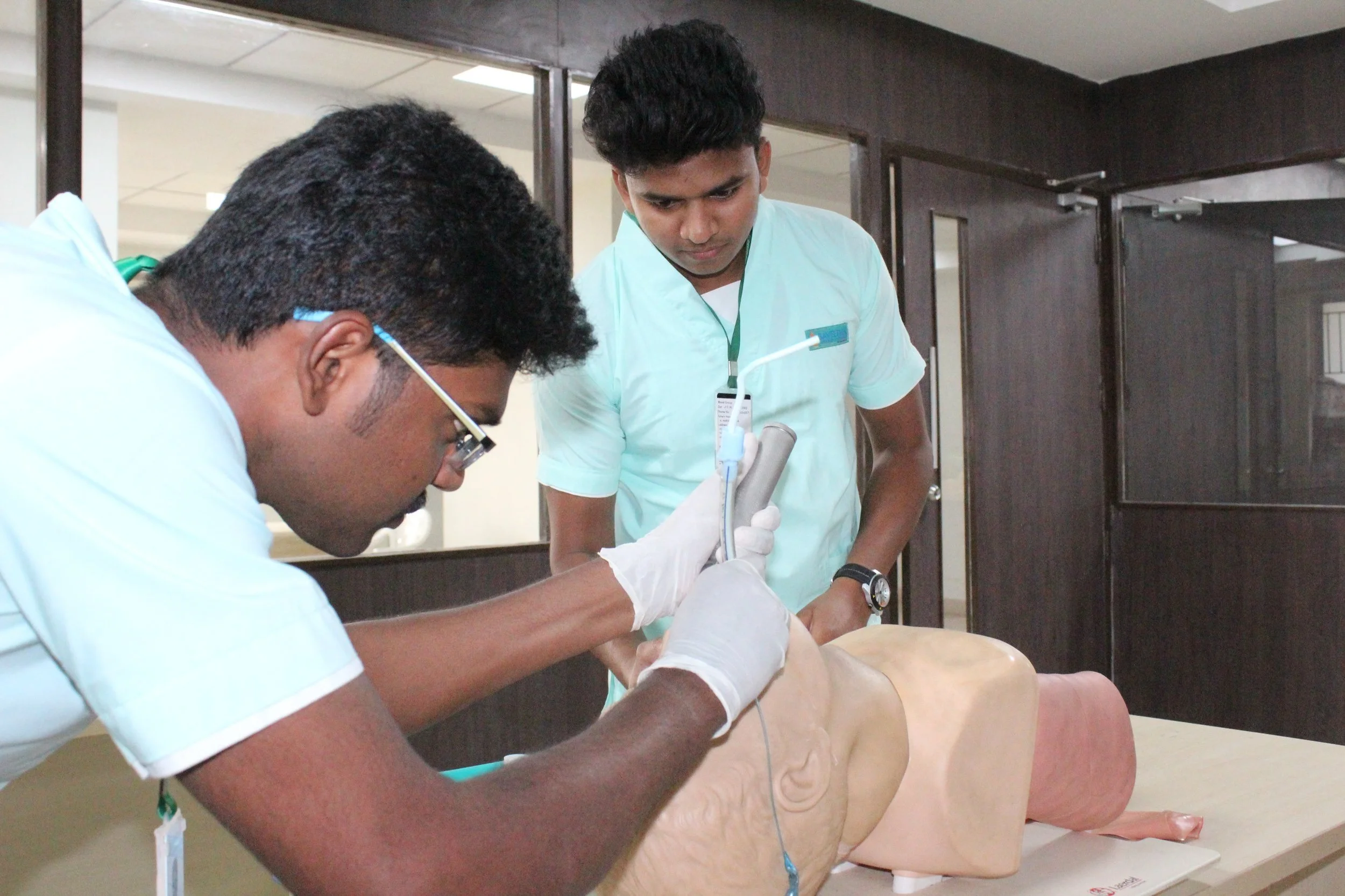
M. Sc Nursing NPCC
Saveetha College of Nursing is committed to enhancing outcome-based knowledge in order to provide outstanding teaching and learning prospects.
Click Here….
Faculty Award
Consultancies

Fable Approach of Learning
A Fable approach of learning presents a hypothetical situation, to which the learning participants respond thereby revealing their perceptions, values, social norms, or impressions of events. It is a short piece of literature or scenario used to add depth or understanding to a story. The word “Fable approach of learning” originates from the Latin word fabula fable is a literary genre: a succinct fictional story, in prose or verse, that features legendary creatures, plants, inanimate objects, and that illustrates or leads to a particular moral lesson. A Fable approach to learning can be a piece of a story, like a snapshot with words. A good Fable is short, to the point, and packed with emotions
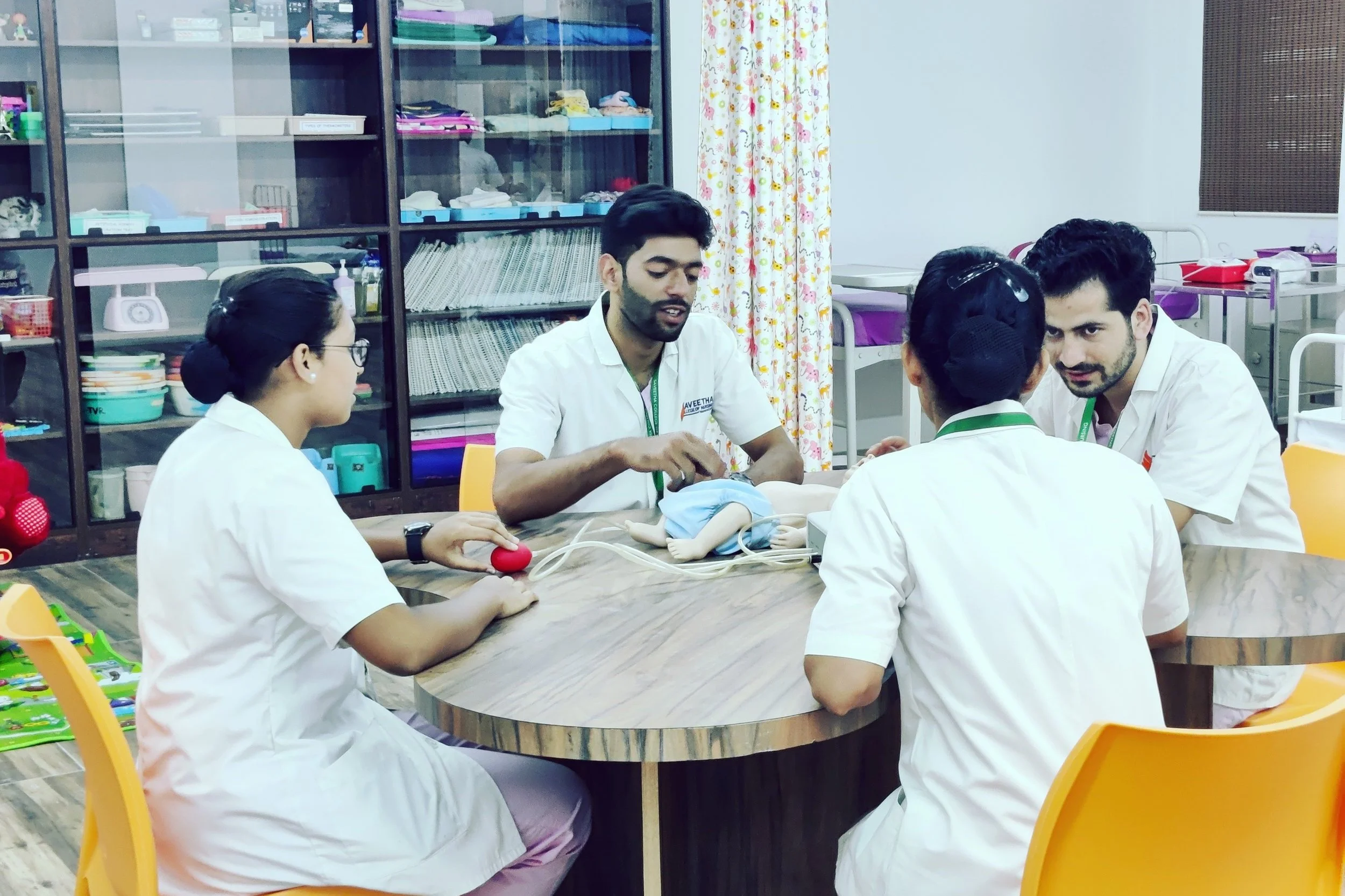
Small Group Learning
The students are divided into group and each group is guided by the facilitator to ensure group progress. Small group learning allows students to develop problem solving, interpersonal, presentation and communication skills, all beneficial to life outside the classroom. These generic skills are difficult to develop in isolation and require feedback and interaction with other individuals.

Context Based Learning
The new approach of teaching and learning which was not introduced in our Nursing colleges is Context-based learning (CBL) in Community Health Nursing. It refers to the use of real-life and fictitious examples in “Teaching" environments in order to learn through the actual, practical experience with a subject rather than just its mere. The principles of CBL are that the starting point for learning should be a problem/situation and be student-centred with emphasis on self-directed learning. Students work in groups on real-life nursing situations. The group identifies and researches concepts and principles needed to work as a practicing nurse. The clinical scenarios encourage research, critical thinking, and developing lifelong learning skills.
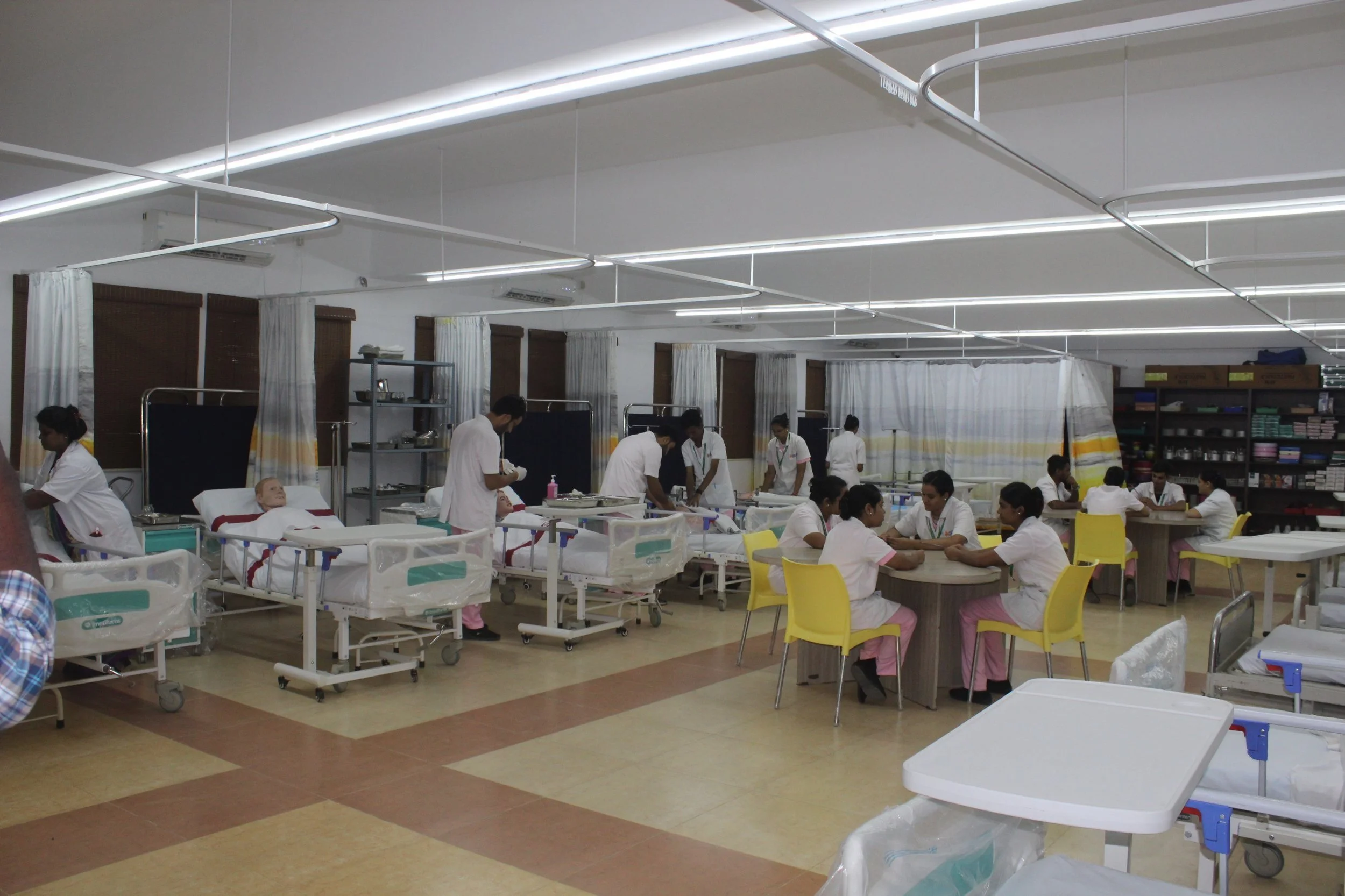
Multi Interactive Learning Algorithm (MILA)
Introduced Multi Interactive Learning Algorithm (MILA) for B.Sc(N) I year students in Nursing Foundation Subject. This method of teaching This method consists of Twenty minutes of teaching time followed by a Twenty minute activity time to better understand and learn the concept. Activities such as jigsaw, POGIL(Process Oriented Guided Inquiry Learning), mind mapping, game based learning, critical pedagogy, peer-led team based learning, role play and scale up. This method of teaching was very interactive, attracts the student attention, retains the memory of the content and makes the student to search for books, journals and internet to find the solution to the questions.
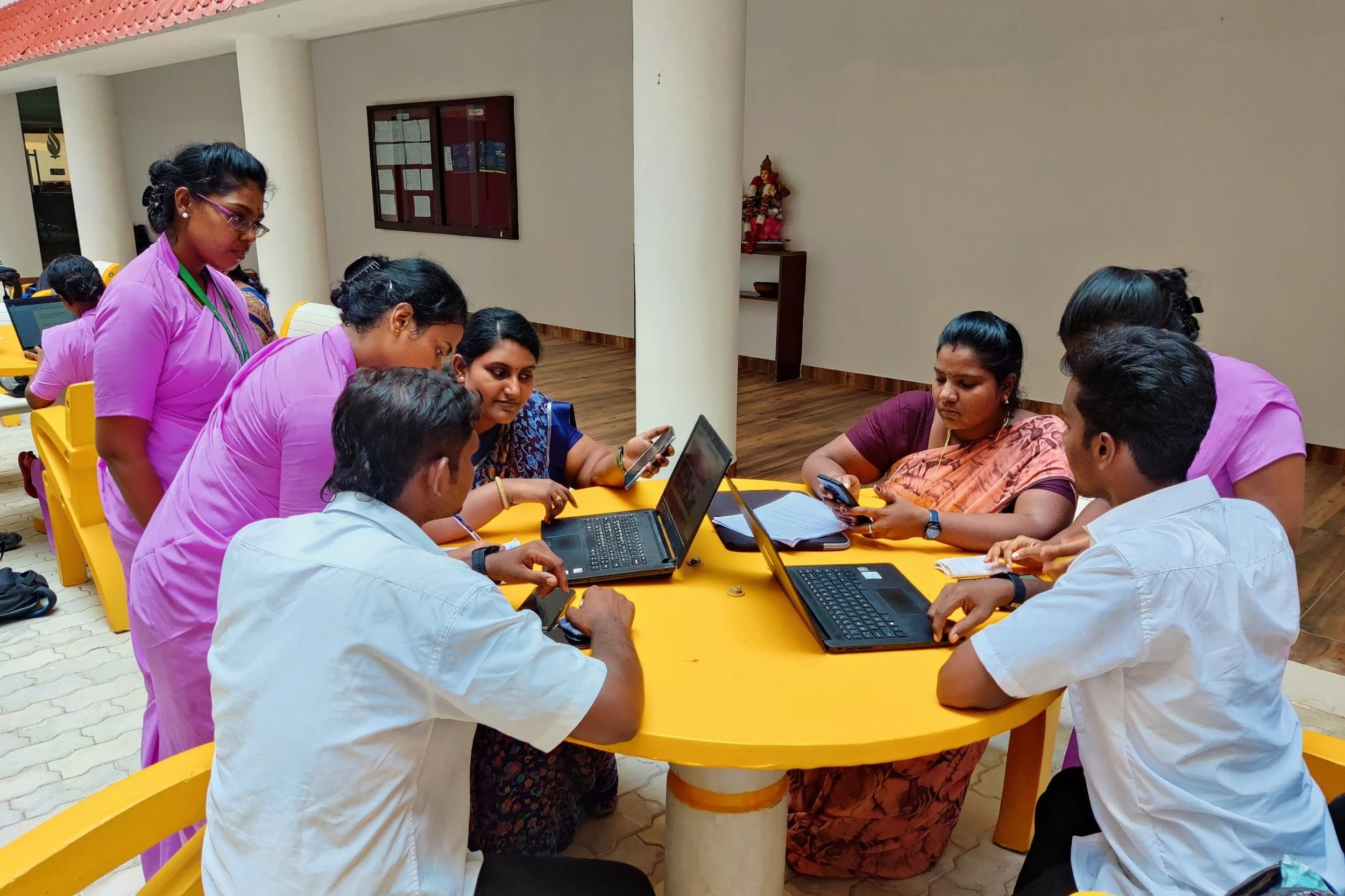
E-Learning
E-learning resources provided to undergraduate and post graduate students to promote self learning and widen the knowledge. It broadens the horizons of many students as it exposes students to the world outside their city or country town. This method creates learn not to rely on the teacher, accountable themselves and become independent.
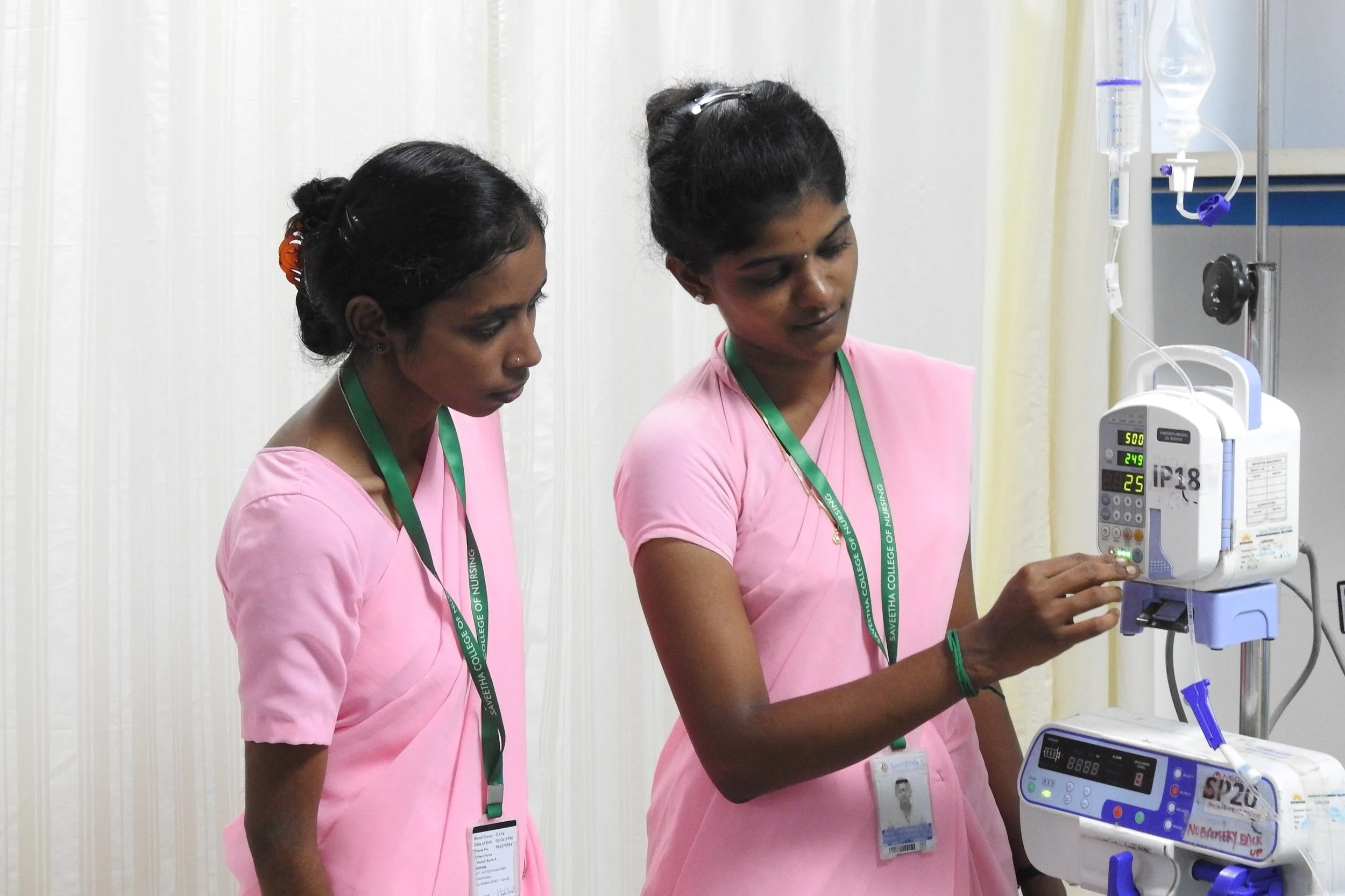
Self Assessment Module
Self Assessment module is one the method of self evaluation of the students as well which create the critical thinking and better understand of their own. It evolves in response to need based assessment, investigations and therapeutic management providing an opportunity for the undergraduate students for proficiency in patient management skills.

Self-Learning Desk
The steps of procedure with principles is prepared and displayed in the lab and students read and do the procedure to the manikin. This method develops the skill and competent among the students.
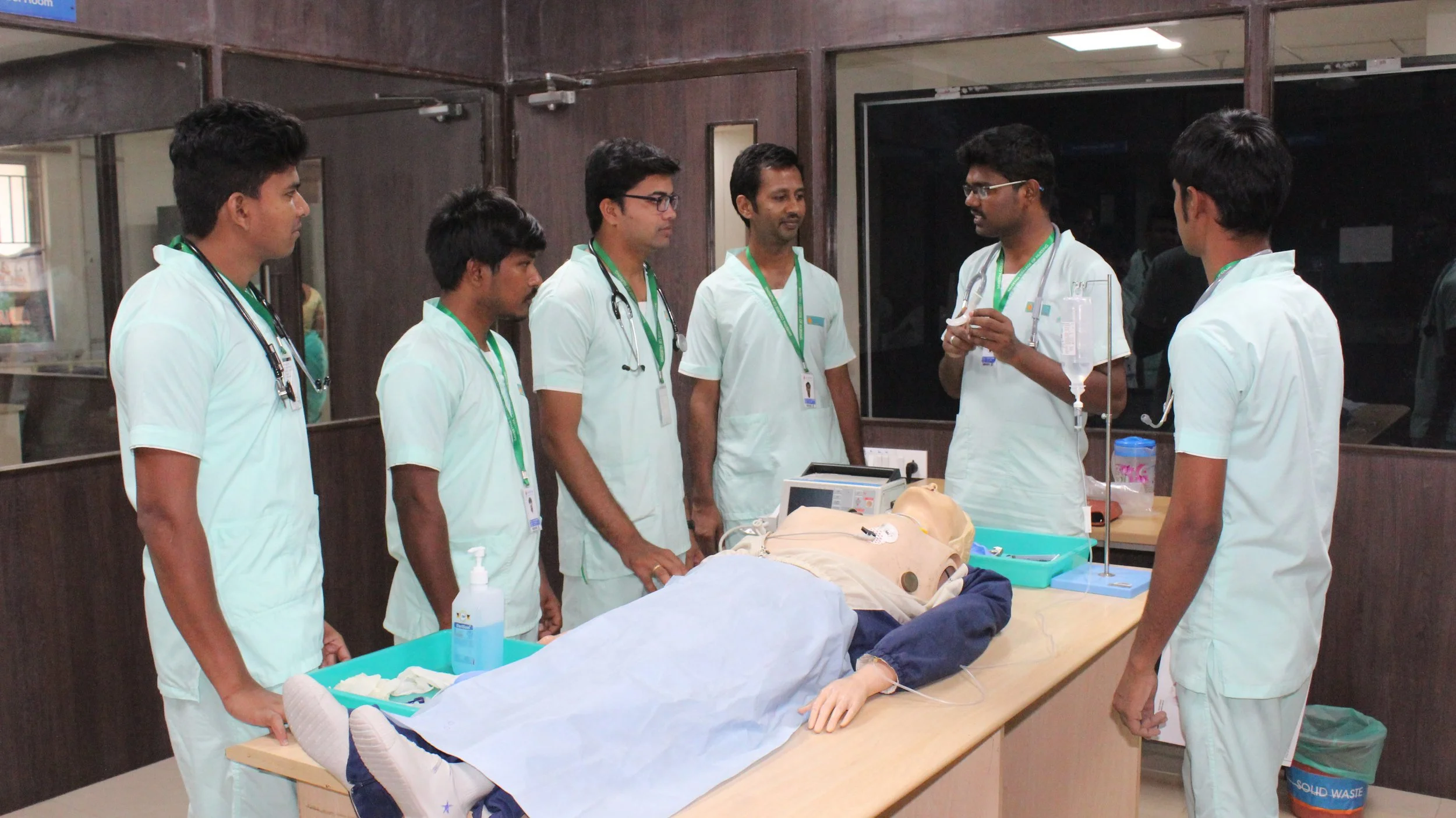
Simulation Corner
Simulation corner is designed to give students hands-on clinical experience. All Laboratories are equipped with simulation model to practice the procedures before they practice on the patients and it creates real life experience and develops skill.

Inter-Professional Learning
Students from different disciplines who learnt together developed interpersonal and teamwork skills and gained knowledge of how other professionals work. The healthcare professional may have been exposed to situations in training that can be reflected on, they know how to behave towards other staff and should have good communication skills that will help them work well in a team. The IPL is to prepare students with the interprofessional skills that will later form the core of their professional identity and pave a smoother route to optimal patient care
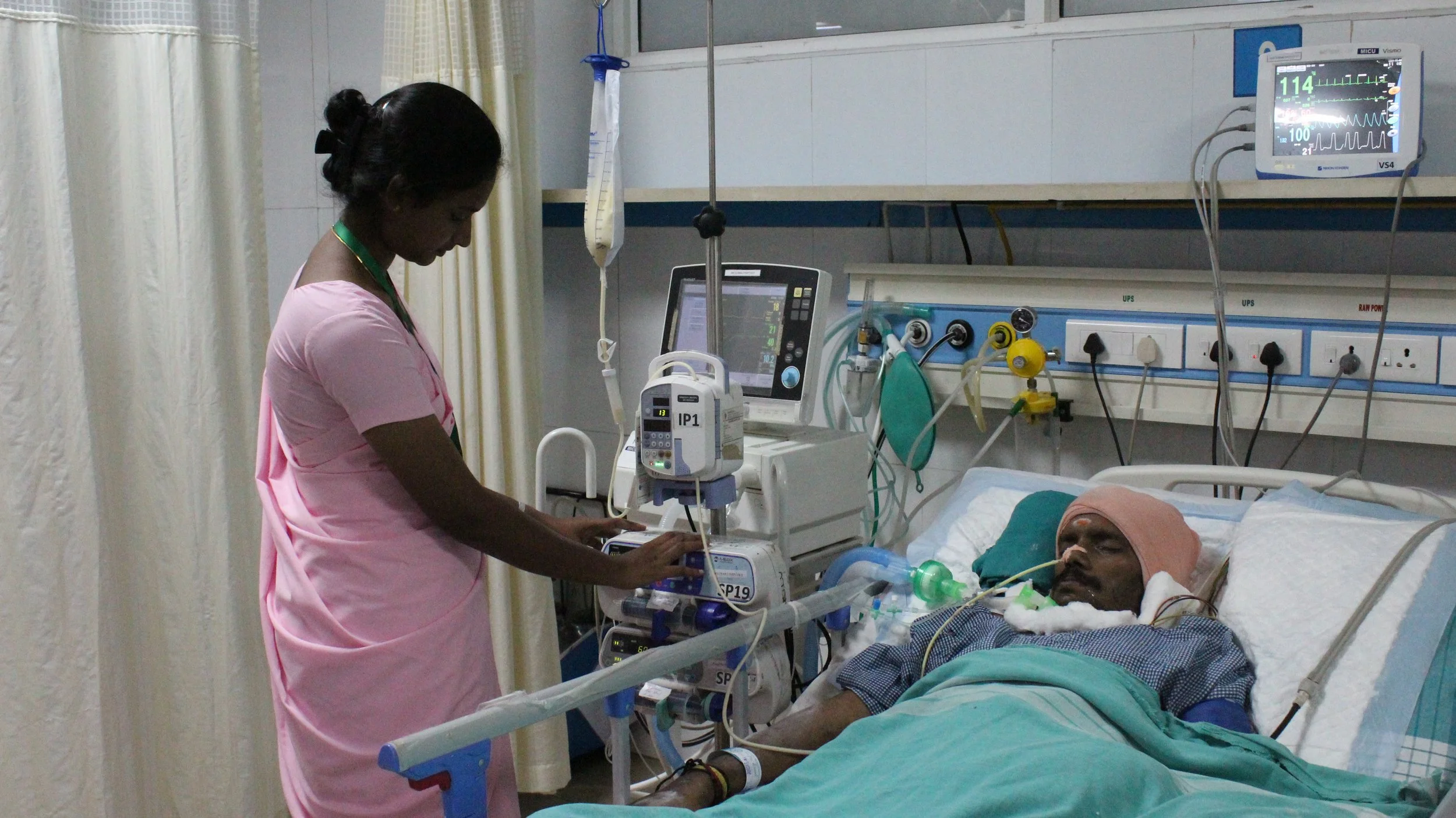
Job Oriented Training Course
Employers of alumni suggested to implement job oriented skillbased oriented training programme for better employability of the students.Hence introducedjob oriented training for the B.Sc(N) students after the course periodwhich will review topractice so that they will be able to work efficiently in workplace.There are 3 following courses are there
· Basic Nursing Skill
· Ventilator Nurse Specialist
· School Health Nurse

Certificate Courses
Health care Personnel suggested that special training need to be conducted during the course so that student will be skilled in specialized area. Hence we introduced the following certificate curses for M.Sc(N) Nursing and P.B.B.B.Sc(N) final year students.
· Operational Research
· Infection Control
· Critical Care Nursing
· Guidance and Counselling
· Communication and leadership skills
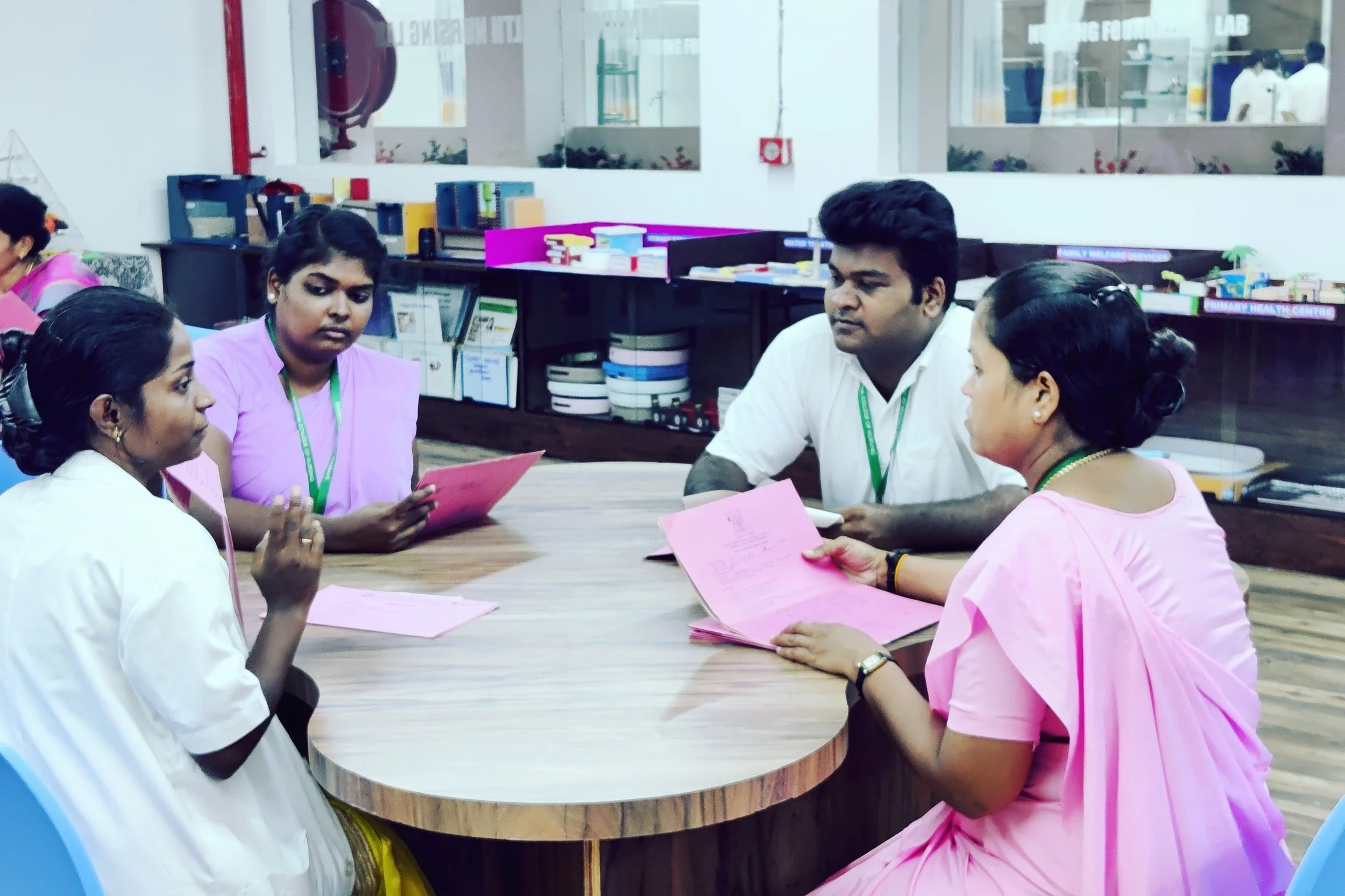
Elective Courses
Some of the facultctive Coursesy alumni in the abroad suggested to implement job oriented short term training courses like Diabetic Nurse Educator, Dialysis Nurse Specialist etc. for employability. Hence introduced the elective course in B.Sc(N) IV Year. The student can choose an optional subject from the following subject which is as opposed to a required course which the student must take during the B.Sc(N) IV year course for better learning experience which will build or increase a specific skill set for the global placement.
Home care Nursin, Diet Nurse Therapist, Nurse Consultant for LearningDisabilities, Diabetic Nurse Educator, Dialysis Nurse SpecialistLactationNurse Consultant

Value Added Courses
To bridge the gap between the academic and industry need, Value Added Courses (VAC) are conducted regularly to enable students to widen their horizon of knowledge in addition to the curriculum. The number of the elderly is projected to grow rapidly every year and occupy major portion of health care industry, many of the patients with chronic illnessassist with disability are needed to attain and maintain maximum function and infertility is also one of the leading problem. Considering these introduced the following value Added courses for B.Sc(N) students.
Geriatric Nursing, Rehabilitation Nursing,Infertility Management Nursing,Gender Sensitivity Care in Nursing, Therapeutic Yoga in Nursing,Role of Nurse in Essential Nutrition for Maternal Health, Nursing Laws and Ethics

Objective Structured Clinical Examination (OSCE)
An objective structured clinical examination (OSCE) is a modern type of examination often used in health sciences (e.g. audiology, midwifery, occupational therapy, optometry, orthoptics, medicine, physician assistants, physical therapy, radiography, rehabilitation medicine, dietetics, nursing, pharmacy, dentistry, chiropractic, paramedicine, podiatry, veterinary medicine, athletic training). It is designed to test clinical skill performance and competence in skills in basic and advanced nursing procedures.
An OSCE usually comprises of short stations (5–10 minutes usually), in which each candidate is examined on a one-to-one basis with one or two impartial examiner(s) and either real patients or electronic patient simulators.